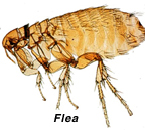
Pet Wellness Exams
Wellness & Preventative Care
All of our pets need regular wellness exams. Whether you are welcoming a new pet to your home or helping your senior pet enjoy their older years, wellness visits provide a perfect chance for us to conduct a thorough medical exam and develop a health plan for your pet. We will be able to identify medical problems, behavioral concerns, and other issues that may affect your pet’s health and overall quality of life.
Our pet wellness exams in Suttons Bay include a complete history and physical examination of your pet. Our veterinarians will discuss any routine or specific diagnostic testing that may be of benefit for your pet. We will also discuss medications, treatments, vaccinations, and address any other questions you may have. Even pets that appear healthy need to have routine wellness exams. This is a great time for our veterinarians to assess and discover subtle changes that may not be as noticeable at home. These evaluations help us to detect illness and disease early, so your pet can be treated before they may progress. Even in older pets, many diseases are manageable with a proper care plan between you and your veterinarian.
This is also a great time for us to address any questions or concerns you may have about your pet. It is our pleasure to discuss any concerns you may have. At our hospitals, our goal is to help you understand your pet’s health and be an advocate in their care. A complete physical exam is the cornerstone of great pet care, and immunizations offer important protection against common and sometimes deadly diseases.
Preventative health care includes such things as:
- Annual or biannual examinations, depending on life stage and health.
- Individualized vaccination protocols as determined by professional associations (such as AVMA or AAFP) and risk to your pet.
- A fecal check to help protect both you and your pet from intestinal parasites as some are transmissible to people as well!
- Yearly wellness blood work screening to pick up on issues early and alter their course.
- Dietary considerations to prevent obesity and keep pets active and comfortable.
- Behavior counseling to promote and enhance the bond between your family and your pet.
- Dental care to prevent and treat gingivitis and periodontitis.
- In seniors, preventative care may also include radiographs to screen for arthritis or other causes of “slowing down”.
Flea Prevention and Control

Fleas can cause problems for pets ranging from minor to life-threatening. Not only can these parasites cause severe itching, irritation, and allergies, but they can also transmit tapeworms and diseases. Fleas can infest dogs, cats, ferrets, mice, and rats. And fleas don’t just stay on pets; they can bite people too.
You definitely don’t want these blood-sucking parasites on your pet or in your home. We can help keep them away or help you get rid of them if they’re already found their way inside. Call us to find out how to eliminate and control fleas and to get your pet started on a flea preventative today!
Heartworm and Internal Parasites
When they bite, mosquitos can transmit heartworm infection. And those heartworms can wreak havoc on your dog or cat. These parasites can severely and sometimes fatally damage the heart, lungs, and blood vessels. Some pets may not show any signs of infections; in those that do, symptoms can vary widely.
In dogs, signs of heartworm disease can range from coughing, fatigue, and weight loss to difficulty breathing and a swollen abdomen (caused by fluid accumulation from heart failure). Canine heartworm infection can also lead to a life-threatening complication called “caval syndrome” (a form of liver failure); without prompt surgical intervention, this condition usually causes death.
Treatment
Treatment for heartworm infection is far more expensive than prevention – and it can actually kill your dog. There is no approved treatment for cats. Fortunately, there is an easy way to keep your dog safe: by administering monthly heartworm preventatives. Most heartworm medications also protect against other parasites, such as roundworms, hookworms, whipworms, ear mites, fleas and ticks. We can recommend the best regimen of prevention for your pet.
We encourage you to review this national map listing the number of positive cases of heartworm disease frequently to see if you are in an area where heartworm disease is present: Heartworm Disease Map
Tick Prevention
Ticks are becoming more and more prevalent in North America, and they’re now being found in areas where people and pets didn’t previously encounter ticks. These parasites aren’t just a nuisance; they can cause serious – and sometimes deadly – diseases, including Lyme Disease, Rocky Mountain spotted fever, babesiosis, ehrlichiosis, and tick paralysis. Contact us immediately if your pet starts coughing or has joint pain, trouble breathing, fever, weakness, or loss of appetite, weight, energy or coordination.
Tick Treatment
Don’t panic if you find a tick on your dog or cat, even if your pet is on a preventative. Some preventatives kill ticks after they’ve come in contact with your pet. Ticks can easily hide under your pet’s fur, so as an added measure of protection, we recommend checking your pet for ticks every time your pet comes in from outside.
Pet Wellness Exams in Suttons Bay
The best method for keeping ticks off your pet is by keeping your dog or cat on a tick preventative. Even indoor-only pets are at risk because ticks can hitch a ride inside your clothing or shoes. Tick preventatives are safe and highly effective at controlling ticks and the diseases they carry. For pet wellness exams and pet preventative care in Suttons Bay, contact us today!
